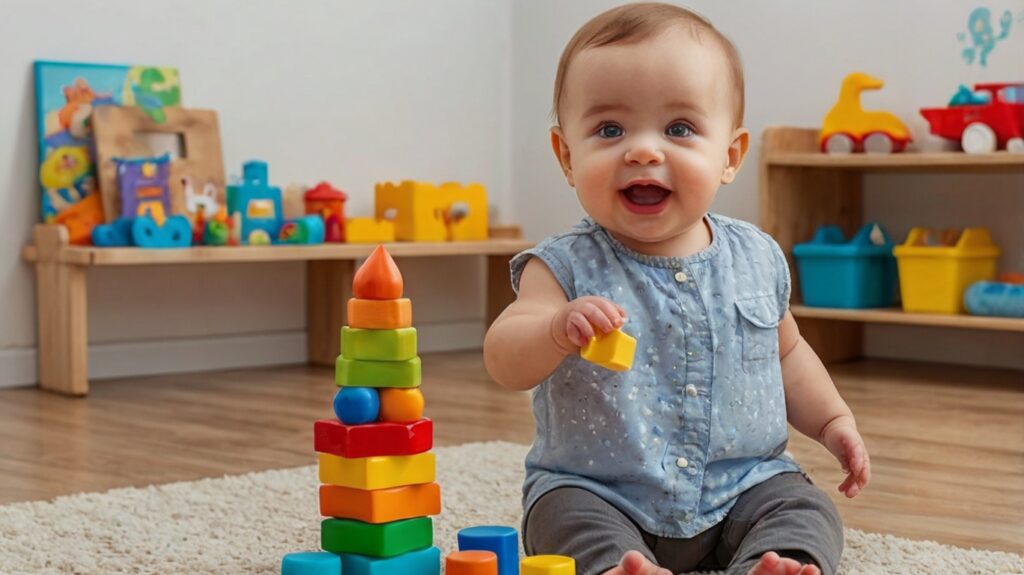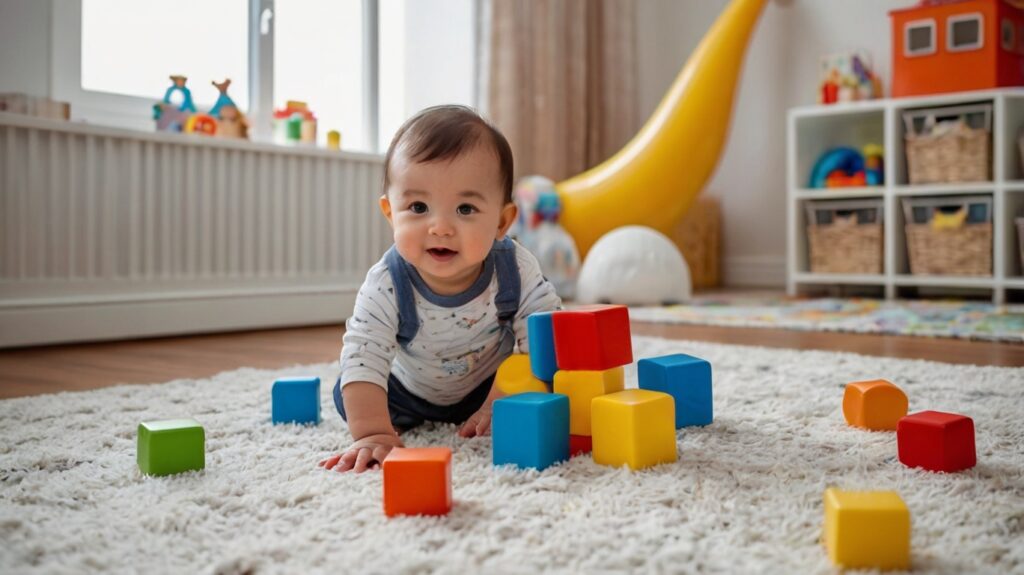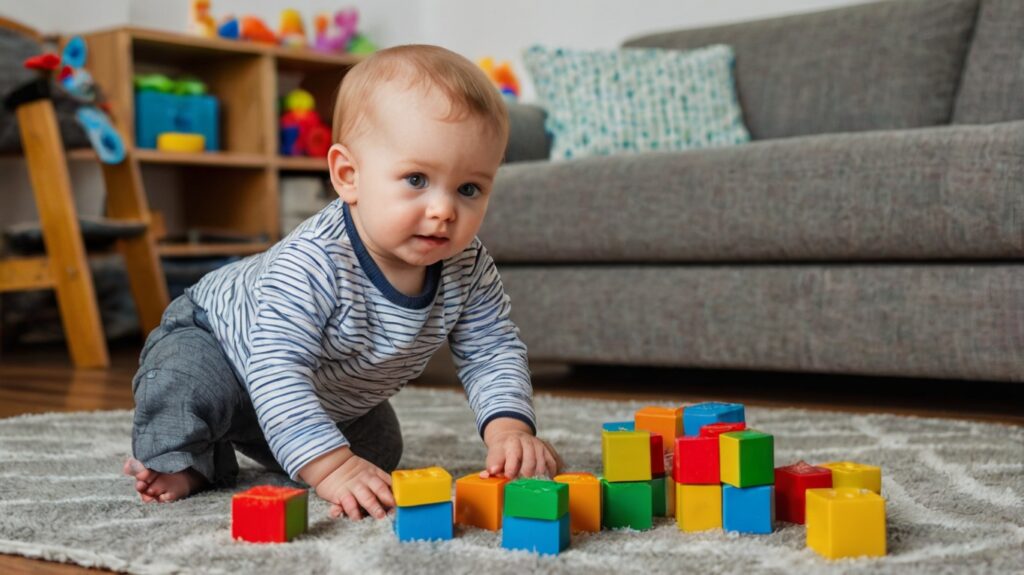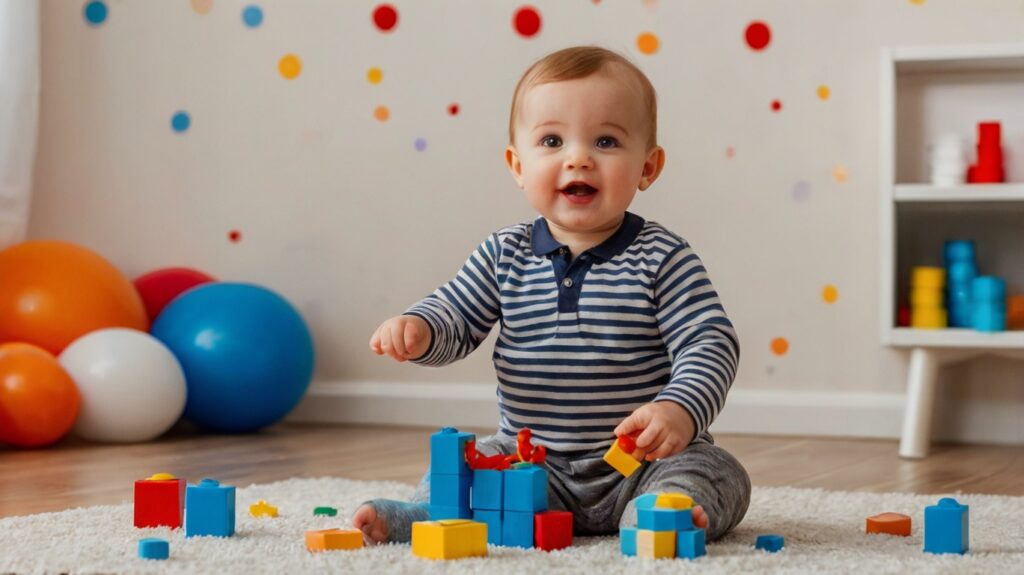
Congratulations—your baby is officially one year old! The first birthday is a huge milestone, marking the incredible growth and changes your little one has experienced in just 12 months. At this stage, babies are beginning to transition from infancy into toddlerhood, showing off new skills, independence, and personality.
Physical Development
- Walking – Some 12-month-olds are taking their first steps, while others are cruising along furniture or crawling quickly. Both are completely normal.
- Standing – Many can stand alone for a few seconds before plopping down.
- Fine motor skills – Expect progress in using the pincer grasp, stacking blocks, and feeding themselves with finger foods.
- Coordination – Your baby might clap, wave, or point more intentionally.

Cognitive Development
- Curiosity – They love to explore and may open cabinets, pull things apart, or test boundaries.
- Problem-solving – Simple puzzles, shape sorters, and “put-in, take-out” toys are favorites.
- Object permanence – Your baby understands that things still exist even when out of sight, so games like peek-a-boo remain fun.
- Memory and learning – They recognize routines, remember faces, and start making connections between words and objects.
Social and Emotional Development
- Stronger bonds – They show clear preferences for parents and caregivers.
- Separation anxiety – May resurface around this age but usually eases with reassurance.
- Personality – Some babies are fearless explorers, while others are more cautious observers.
- Imitation – Copying adult behavior—like pretending to talk on the phone or feed a doll—is a sign of healthy social growth.

Feeding at 12 Months
- Transitioning from milk – Many babies move from formula or breast milk to whole cow’s milk (about 16–24 oz daily). If you’re still breastfeeding, that’s wonderful too.
- Solid foods – Your baby should now eat 3 meals and 2–3 healthy snacks daily. Offer a variety of textures, flavors, and colors.
- Self-feeding – Encourage finger foods and practice with a spoon or fork.
- Hydration – Serve water in a sippy or straw cup during the day.
Sleep Patterns
- Night sleep – Most 12-month-olds sleep 10–12 hours at night.
- Naps – Usually 2 naps, but some babies begin transitioning to 1 longer midday nap.
- Routine – A calming, predictable bedtime routine supports restful sleep.
Communication and Language
- First words – Many babies say “mama,” “dada,” or another meaningful word.
- Gestures – Waving, pointing, and shaking their head “no” help them communicate.
- Understanding – They likely follow simple directions like “give me the ball” or “come here.”
- Babbling – Speech-like sounds become more complex, laying the groundwork for language.

Safety Tips
- Baby-proof thoroughly – Now that your baby may be walking or climbing, hazards are everywhere.
- Choking hazards – Avoid small foods (nuts, grapes, hot dogs unless cut safely).
- Furniture and TVs – Anchor heavy items to walls to prevent tipping.
- Supervision – Watch closely near water, stairs, and outdoors.
When to Call the Pediatrician
Every child develops at their own pace, but consult your doctor if your baby:
- Isn’t crawling, pulling up, or trying to stand.
- Doesn’t babble, gesture, or respond to their name.
- Shows little interest in playing or interacting.
- Has difficulty transitioning to solid foods.
Parent Tip
Your 12-month-old is full of curiosity, energy, and affection. Encourage learning through play, read daily, and allow plenty of safe exploration. Celebrate this amazing first year—you’ve both come so far! 💕